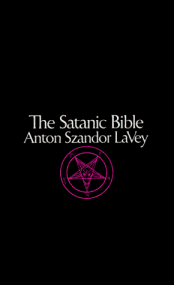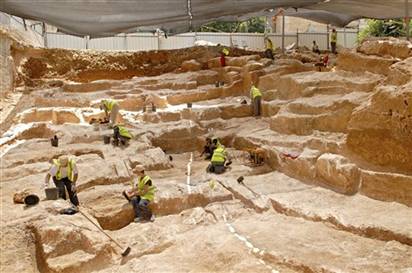
COGwriter
Back in 1969 Anton Lavey wrote The Satanic Bible. On page 96 (in the 1976 version) it mentions birthdays:
THE highest of all holidays in the Satanic religion is the date of one’s own birth. This is in direct contradiction to the holy of holy days of other religions, which deify a particular god who has been created in an anthropomorphic form of their own image, thereby showing that the ego is not really buried.
The Satanist feels: “Why not really be honest and if you are going to create a god in your image, why not create that god as yourself.” Every man is a god if he chooses to recognize himself as one. So, the Satanist celebrates his own birthday as the most important holiday of the year. After all, aren’t you happier about the fact that you were born than you are about the birth of someone you have never even met? Or for that matter, aside from religious holidays, why pay higher tribute to the birthday of a president or to a date in history than we do to the day we were brought into this greatest of all worlds?
Despite the fact that some of us may not have been wanted, or at least were not particularly planned, we’re glad, even if no one else is, that we’re here! You should give yourself a pat on the back, buy yourself whatever you want, treat yourself like the king (or god) that you are, and generally celebrate your birthday with as much pomp and ceremony as possible.
After one’s own birthday, the two major Satanic holidays are Walpurgisnacht and Halloween (or All Hallows’ Eve). (Lavey A, Gilmore P. The Satanic Bible. Avon, September 1, 1976, p. 96–note it is on page 53 of an online version I found also).
It is interesting that birthdays are considered the most important holiday to these Satan worshipers (the founding of their “church”, called Walpurgisnacht, and Halloween are the other ones of importance to them).
The Bible never encourages the celebration of birthdays. Instead, it tends to speak in a negative manner concerning them (cf. Matthew 14:6-11; Jeremiah 20:14-18).
Of course, early Christians did not celebrate birthdays nor did the early Jews. Nor have real Christians ever celebrated Halloween.
No early religious/church writing from the second century that I have seen (and I have read most that are available) seems to endorse (or even suggest) the celebration of birthdays by any who professed Christ.
Although he was not part of the Church of God, the writings of the early third century Catholic theologian Origen of Alexandria show that, even that late, Orthodox Catholics were against the celebration of birthdays. The Catholic Encyclopedia states:
Origen, glancing perhaps at the discreditable imperial Natalitia, asserts (in Lev. Hom. viii in Migne, P.G., XII, 495) that in the Scriptures sinners alone, not saints, celebrate their birthday (Martindale C. Christmas, 1908).
Here is some of what Origen wrote:
…of all the holy people in the Scriptures, no one is recorded to have kept a feast or held a great banquet on his birthday. It is only sinners (like Pharaoh and Herod) who make great rejoicings over the day on which they were born into this world below (Origen, in Levit., Hom. VIII, in Migne P.G., XII, 495) (Thurston H. Natal Day. Transcribed by Thomas M. Barrett. Dedicated to Margaret Johanna Albertina Behling Barrett. The Catholic Encyclopedia, Volume X. Copyright © 1911 by Robert Appleton Company. Online Edition Copyright © 2003 by K. Knight. Nihil Obstat, October 1, 1911. Remy Lafort, S.T.D., Censor. Imprimatur. +John Cardinal Farley, Archbishop of New York).
The writings of the late third century Catholic theologian Arnobius show that, even that late, Catholics objected to the celebration of birthdays as he wrote:
…you worship with couches, altars, temples, and other service, and by celebrating their games and birthdays, those whom it was fitting that you should assail with keenest hatred. (Arnobius. Against the Heathen (Book I), Chapter 64. Excerpted from Ante-Nicene Fathers, Volume 6. Edited by Alexander Roberts & James Donaldson. American Edition, 1886. Online Edition Copyright © 2005 by K. Knight).
Thus birthday celebrations, even of gods and leaders, were condemned as far as the late third century by even Roman Catholic leaders. But like many practices associated with non-biblical “Christianity”, this changed in the fourth century.
Essentially birthdays became celebrated later because of compromises with the pagan cult of Mithraism (see Did Early Christians Celebrate Birthdays?).
And for four decades now, Satanists claim that birthdays are their highest holiday. Do you observe them too?
Some articles of possibly related interest may include:
Did Early Christians Celebrate Birthdays? Did biblical era Jews celebrate birthdays? Who originally celebrated birthdays? When did many that profess Christ begin birthday celebrations?
Is Halloween Holy Time for Christians? This article provides some historical and biblical insight on this question.
Is God Unreasonable? Some have suggested that if God requires Sabbath-keeping He is unreasonable. Is that true?
Is There “An Annual Worship Calendar” In the Bible? This paper provides a biblical and historical critique of several articles, including one by WCG which states that this should be a local decision. What do the Holy Days mean? Also you can click here for the calendar of Holy Days.
The History of Early Christianity Are you aware that what most people believe is not what truly happened to the true Christian church? Do you know where the early church was based? Do you know what were the doctrines of the early church? Is your faith really based upon the truth or compromise?







 Palace of Westminster in London
Palace of Westminster in London


